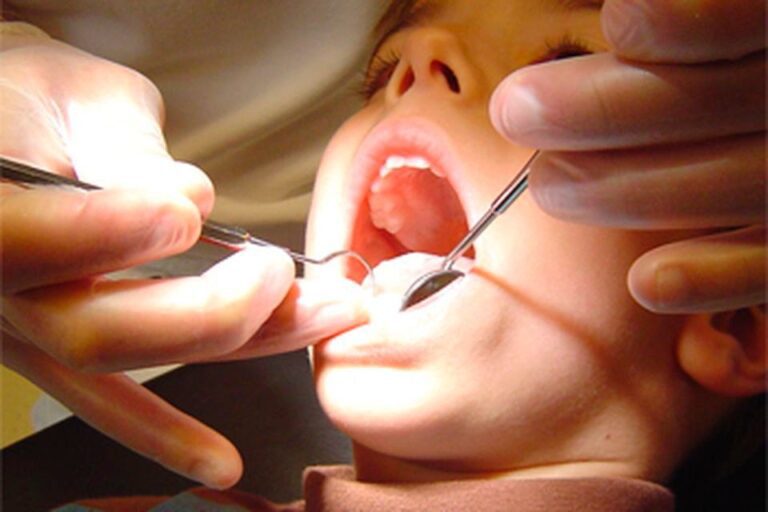Legislation banning silver dental fillings will apply in Northern Ireland, but not in Britain
The warning comes after the European Parliament voted this week to ban the use of dental amalgam for fillings from January 1, 2025.
Although not yet iron-clad, the decision to go ahead with the law is expected to be accepted by the European Council.
The BDA warned yesterday that the ban could be “the straw that breaks NHS dentistry’s back”.
Silver amalgam is the most common material used for NHS permanent fillings across the UK and was used in around 46% of all fillings in adults and children in the last financial year.
Under the new legislation, the material will be phased out entirely, with its manufacture and export from the EU banned from next year – five years earlier than originally expected.
While Great Britain will face disruption and higher costs due to the impact on supply chains, Northern Ireland will be hit with an official ban as a result of the post-Brexit deals.
Mercury-free ‘composite’ or ‘white’ fillings are most commonly used in private dentistry, with BDA estimated treatment times and costs to be over 50% higher than using amalgam.
MEPs backed an amendment that says EU member states must “ensure that appropriate compensation is available for mercury-free alternatives” to limit the socio-economic impact of the move.
The Scottish Government – which operates a similar system to Northern Ireland – has approved an amendment to its existing Statement of Dental Remuneration (SDR) legislation to mitigate these costs.
With no executive member in Stormont, Northern Ireland is unable to take similar action.
The BDA said the move could have serious implications for the future of NHS dentistry here.
“In practice this will require a rapid transition to a post-amalgam model,” a spokesman said.
“That means longer processes and higher-cost materials – which could push the high-volume/low-margin model the service operates on to the breaking point.
“Right now there isn’t even the political space to develop agreed pay rises. More time for payments means fewer appointments, creating access problems.
“While the BDA has long supported the phasing out of dental amalgam, it believes that this rapid phasing out is neither feasible nor justified.
TUV chief Jim Allister said the crisis showed the “disastrous” nature of coming under EU law
“Dental amalgam has been used and studied extensively for 150 years as a restorative material. Its safety and durability are well documented and it remains the most appropriate material for a range of clinical conditions.
“It lasts longer and is easier to install than any of the current alternatives. Faced with rising costs and flat investment, some practices currently provide NHS treatments – particularly those requiring laboratory work – at a financial loss.
“Additional costs and reduced time will further squeeze practices and likely push the NHS further.
“The European Parliament amended the vote to press Member States for a fairer agreement on practices, to cover new costs and to minimize the impact on patients with the highest need and lowest income.
“This is exactly what Northern Ireland needs to do.”
With BDA statistics showing Northern Ireland tops the UK league table for oral health inequality, TUV chief Jim Allister said the amalgam ban was a “serious issue”.
“The BDA has recognized that this ban will have a disproportionate impact on services in Northern Ireland, which has the highest proportion of filled teeth,” he said.
“Under the Protocol, Northern Ireland is expected to phase out dental amalgam on the same basis as EU Member States.
“This is a serious issue for Northern Ireland and a living example of how devastating it is to be under foreign laws that we do not make and cannot change.”


